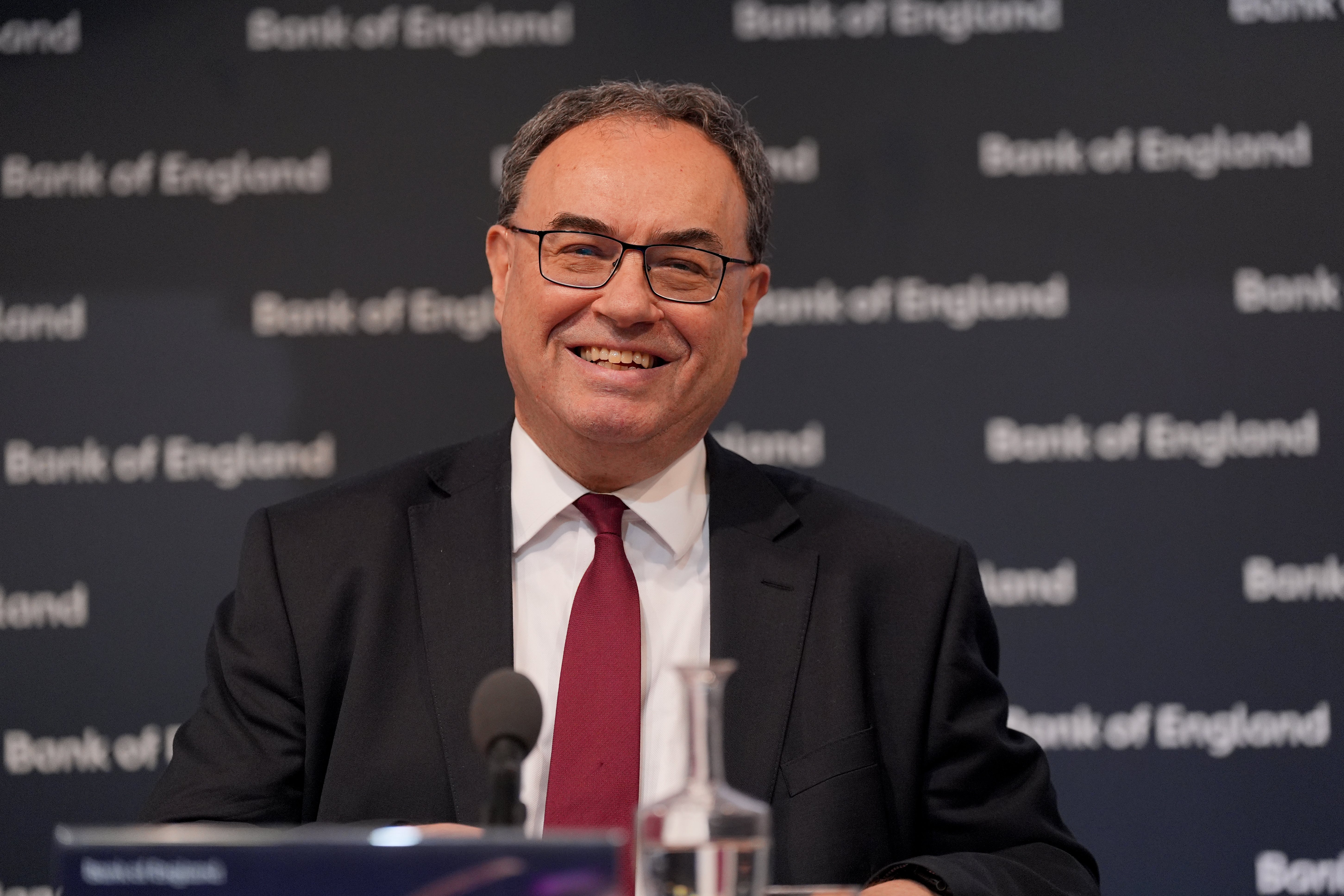City cheers first interest rate cut in four years – but has the inflation dragon been slain?
Relieved households and businesses are cheering the MPC’s long-awaited decision to cut interest rates. But the narrow 5-4 vote, and governor Andrew Bailey’s cautious comments, suggest predictions of two further cuts this year are optimistic, says James Moore


For the first time in more than four years, the Bank of England has cut interest rates – a rare piece of good news. Savers won’t be happy, but they have had plenty of time in the sun of late.
Cheers rang out in the City of London and across Britain’s business community, which has been involved in a sisyphean struggle with high financing costs. These have eaten away at margins, compromised growth and held back the stuttering economy.
Yes, this was only a quarter point cut – but given how long the economy has been suffering under base rates of 5.25 per cent, any relief is sweet.
“This rate cut was desperately needed, and small firms will give it a warm welcome as a harbinger of more cuts yet to come,” said Martin McTague, the chair of the Federation of Small Businesses, whose members have been at the sharp end of this.
Many have faced a desperate struggle to find the credit they need to finance their businesses, or at least credit that they can reasonably afford.
“A brave new world,” said the Wealth Club investment service. “Whisper it quietly, but an economic revival appears to be gathering pace,” said Jonathan Moyes, its head of investment research.
Forecasters, meanwhile, scrambled to put out notes calling for another cut – or even, whisper it, two cuts – before the end of the year.
I fear I’m going to have to play the Jeremiah here. There are three more meetings of the rate-setting Monetary Policy Committee (MPC) due between now and 31 December; I would be very surprised to see its members prepared to green-light further cuts in two of them.
This decision was said to be “on a knife edge” and so it proved. It is not what anyone would describe as a ringing endorsement for a cut: four of the nine MPC members wanted to hold off at least until September, maybe longer.
The four were rate hawks Catherine Mann, Jonathan Haskell and Megan Greene, who were joined by the Bank’s chief economist, Huw Pill. Both Pill and Haskell had given speeches warning of the danger of inflation in the run-up to the decision.
The remaining five, who won the day, were headed by the MPC’s leading dove, external member Swati Dhingra, who was joined by Dave Ramsden, the Bank’s deputy governor for markets and banking. Dhingra has been voting for a cut since February. Moving into their camp since last time were Sarah Breeden, the Bank’s deputy governor for financial stability, and governor Andrew Bailey. The first vote of new joiner Clare Lombardelli, who was appointed deputy governor for monetary policy last month, was highly consequential: she, too, voted for a cut.
However, the hawks’ voices may be heard more loudly in the future. Bailey said the committee still views rates at 5 per cent as “restrictive”. McTague and his members, along with Britain’s sizeable corps of mortgage holders would certainly agree with him.
The Bank thinks inflation will move back above its 2 per cent target – which is also the current rate – to finish the year at 2.75 per cent before falling again in 2025. Any signs of inflation pushing above that level will severely damage, if not squash, the widespread hopes of further cuts.
Bailey and his colleagues remain concerned about wage settlements, although these have fallen, and high service price inflation, which stands at 5.7 per cent and may go higher still in August.
“We are making good progress to returning to the 2 per cent target sustainably,” the governor said, noting that “risks have moderated impact from past shocks”. However, he said he remained concerned that key indicators “remain elevated”.
“We need to put the period of high inflation firmly behind us,” said Bailey who, I think, would view the suggestion by some commentators that the battle over inflation has been won as premature.
He also made clear his view that we are “unlikely we are going back to the world we were in post-financial crisis” when rates were close to zero, although he would not be drawn on what level he felt rates would no longer be seen as restrictive.
The MPC also has a relatively pessimistic view of how the UK economy, which came to life in the early part of the year, will perform from here, predicting quarterly growth of 0.3 per cent and 1.75 per cent annually at the end of its forecast period.
That will come as a blow to chancellor Rachel Reeves, who must otherwise have breathed a sigh of relief at news of the cut after her grim announcements concerning the state of the public finances and the very real possibility of a tax-raising budget on the horizon. Labour wants – indeed needs – growth in the range of 2.5 per cent.
But setting these qualifications aside, this seems to be the beginning of the end of Britain’s interest-rate pain. Borrowing costs will now ease a bit, and mortgage deals should improve. There is light at the end of the tunnel; what remains to be seen is how bright it will grow during the rest of this year.






Join our commenting forum
Join thought-provoking conversations, follow other Independent readers and see their replies
Comments